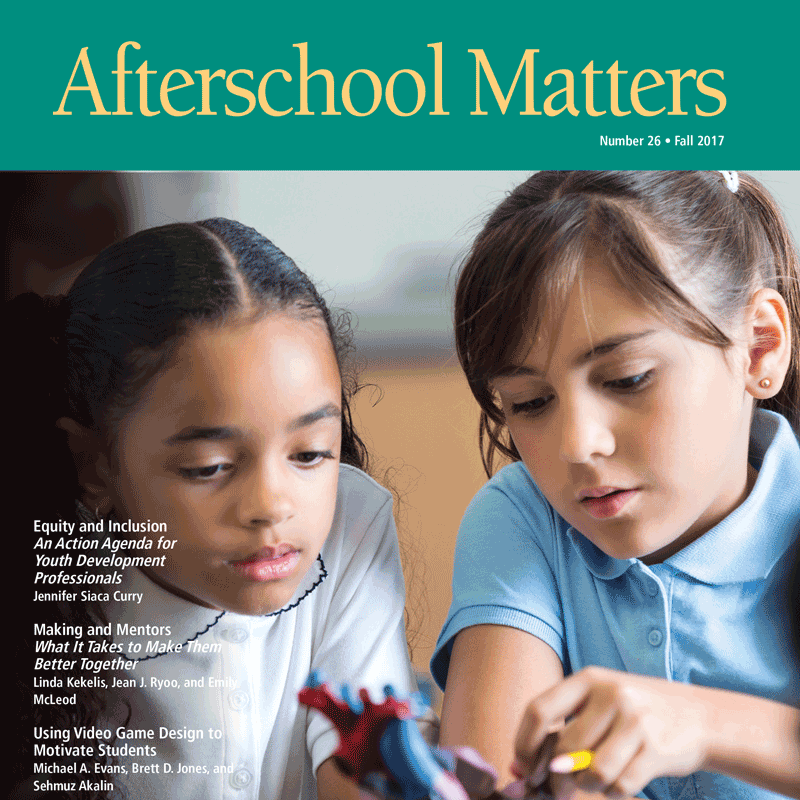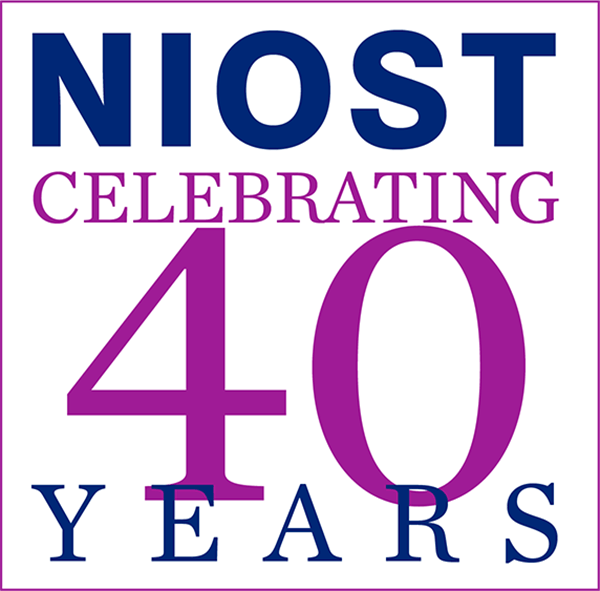Afterschool Matters Journal Explores Diversity and Common Goals of the Field
November 27, 2017
 The newest issue of Afterschool Matters, the national, peer-reviewed journal dedicated to promoting professionalism, scholarship, and consciousness in the field of afterschool education, is focused on both the diversity of the field and the common goal that all afterschool programs share -- providing high-quality education and support to our nation’s youth.
The newest issue of Afterschool Matters, the national, peer-reviewed journal dedicated to promoting professionalism, scholarship, and consciousness in the field of afterschool education, is focused on both the diversity of the field and the common goal that all afterschool programs share -- providing high-quality education and support to our nation’s youth.
“No matter where we are located or what kind of programming we provide, we are challenged to find enough time and money to train staff. We yearn to understand how best to support children with all their varied needs and backgrounds,” Georgia Hall, Ph.D., managing editor of Afterschool Matters, writes in her column in the fall 2017 volume. “This issue of Afterschool Matters underscores our common goals while demonstrating the diverse paths we follow: from Making and video games to arts education supported by university students and more.”
The lead article in this issue of Afterschool Matters is centered on diversity and inclusion. Jennifer Siaca Curry, Ed.D., a longtime out-of-school-time provider, lays out an action agenda for youth development professionals, challenging afterschool leaders to incorporate fully inclusive language, practices, and attitudes into their programs.
“Our field is built on the promise of social pedagogy; we are “the village” contributing to the upbringing of children in our communities,” writes Dr. Siaca Curry. “By assuming this role with a critical approach, we take responsibility for empowering youth and working against ideas and behaviors that negatively affect them.”
The Voices from the Field essay in this issue comes from Michelle Masarik, M.A., a STEM advisor for the Friendship Train Foundation and a member of the 2015 Afterschool Matters Practitioner Research Fellowship. Masarik draws on her experience as a STEM educator to stress the shared learning and empowerment that happens for both students and teachers in afterschool programming.
“As I became more adept at facilitating STEM programming, I began to believe that I was all the things that I was asking my students to believe they could be,” she writes. “Together, we were all becoming scientists, engineers, and computer programmers.”
The Afterschool Matters Journal is part of the Afterschool Matters Initiative and is published two to three times per year by the National Institute on Out-of-School Time (NIOST) with support from the Robert Bowne Foundation. More about Afterschool Matters, including links to current and past issues of the journal, is available at niost.org/afterschoolmattersjournal.
Since 1979, NIOST has been a leader in defining, shaping, and promoting out-of-school time as a distinct professional field with evidence-based quality standards. NIOST is a program of the Wellesley Centers for Women at Wellesley College where scholars work to advance gender equality, social justice, and human wellbeing.



